University of Huelva in Spain has been a partner university of Laurea in the past and currently Laurea and Huelva are partners in the PIONEER network. Therefore, I wanted to visit University of Huelva and see how their international weeks are organized.
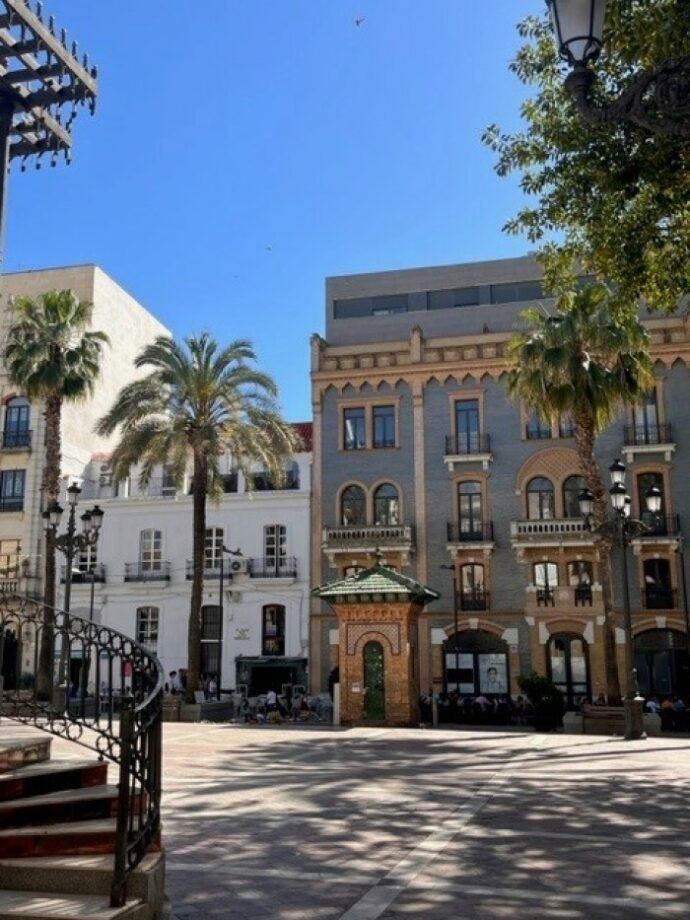 City Centre of Huelva, photo by Sini Aalto-Friman
City Centre of Huelva, photo by Sini Aalto-Friman
The City of Huelva
Huelva is a city of 150 000 inhabitants, located between Sevilla in Spain and Faro in Portugal in Andalucía. It is called the city of lights because there is a lot of sunlight throughout the year. Even in April when I visited the city the temperatures were 33 during daytime. The last time they got some rain was in December last year. The city is famous for having the oldest football team in Spain. In history Huelva has been the city of mining copper and gold.
Huelva is a charming small city with a vibrant city center with plenty of restaurants and shops. The city is safe, and the locals called their hometown to be “The real Spain”. Huelva is a lot cheaper than many big cities in Spain, when it comes to food for example.
University of Huelva
University of Huelva is a young and dynamic university located a bit outside the center on a former military area. The university was founded 1993 so it celebrated its 30th anniversary. It has 9 000 teaching staff members, 400 general staff members and 11 300 students. The common fields of study with Laurea were business, nursing, and social services. They have 39 Bachelor programs, 40 master programs and 11 PhD programs. Annually they welcome 700 exchange students. They have teaching in seven different languages.
International Week at the University of Huelva
The international week was organized 17-21 April 2023. The international week had 76 participants, most staff exchange but some were also teaching. The participants came from 26 countries and 4 continents.
On Monday April 17, Vice rector for Internationalization, Reyes Alejano Monge presented Huelva and University of Huelva to us. We had simultaneous campus tours, where I chose to visit the library. During the visit I learned that the library does not buy books anymore, since 80 percent of the material is online. The students have an obligatory 4,5 credit course organized by library staff for all students teaching them how to search for information and how to use databases, how to quote and about digital aspects, such as ChatGPT. What was also special about the library services was that they have 100 laptops that the students can borrow for their studies.
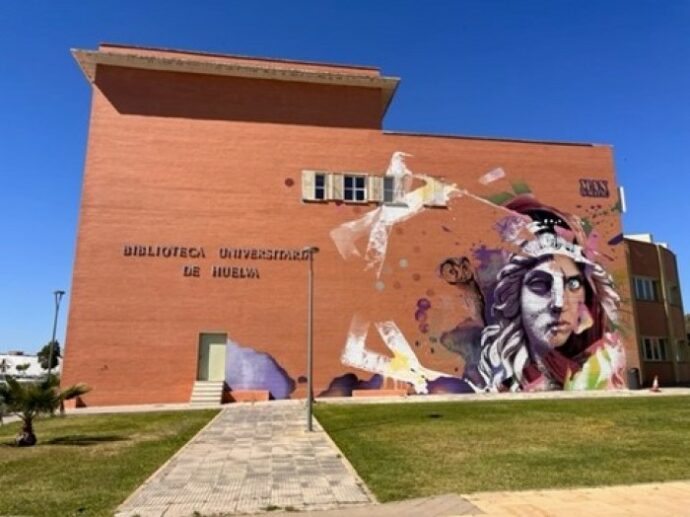 University Library on University of Huelva Campus. Photo by Sini Aalto-Friman
University Library on University of Huelva Campus. Photo by Sini Aalto-Friman
After networking lunch, we had a boat trip along the estuary followed by a welcome drink by the river.
 Rio Tinto river after sunset in Huelva. Photo by Sini Aalto-Friman
Rio Tinto river after sunset in Huelva. Photo by Sini Aalto-Friman
On Tuesday April 18, everybody got the possibility to learn some Spanish and try flamenco dancing! The lecture on “Sustainable Campus” by Miguel Puig was interesting. He described how University of Huelva approaches sustainability issues, for example by having food waste indicators, evaluating, and reducing the use of water, increasing awareness of energy solutions, recycling, and developing waste disposal. They are also committed to carbon neutrality.
Also, other topics were covered, like ensuring the qualifications of teachers, promoting lifelong learning, gender equality, and for example increasing the number of females at the universities and in working life. In addition, working life topics were discussed. Employment contracts are minimum 24 months at the university. Minimum 10 per cent of students at University of Huelva are from developing countries. They have new initiatives to develop disability and inclusion topics and working groups to reduce discrimination.
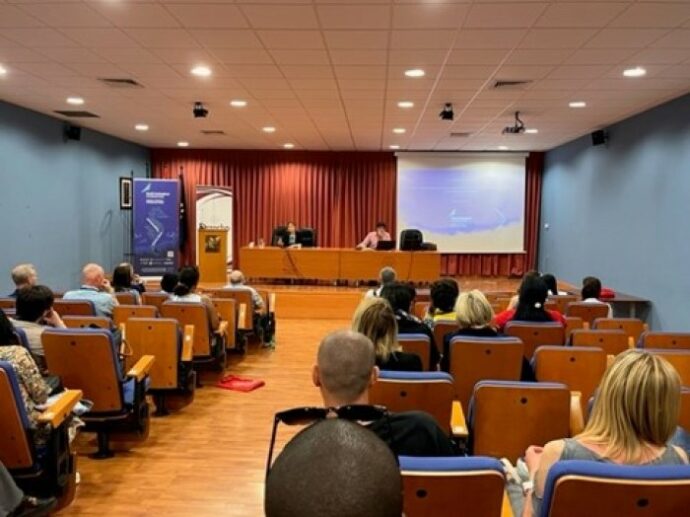 Lecture on “Sustainable Campus” by Miguel Puig. Photo by Sini Aalto-Friman
Lecture on “Sustainable Campus” by Miguel Puig. Photo by Sini Aalto-Friman
On Wednesday April 19th we continued with Spanish and flamenco. The study abroad fair welcomed local students and staff to familiarize themselves with all the countries, cultures and universities. Many were interested about Finland, and I presented naturally what Laurea has to offer. We got to taste delicacies from many different countries.
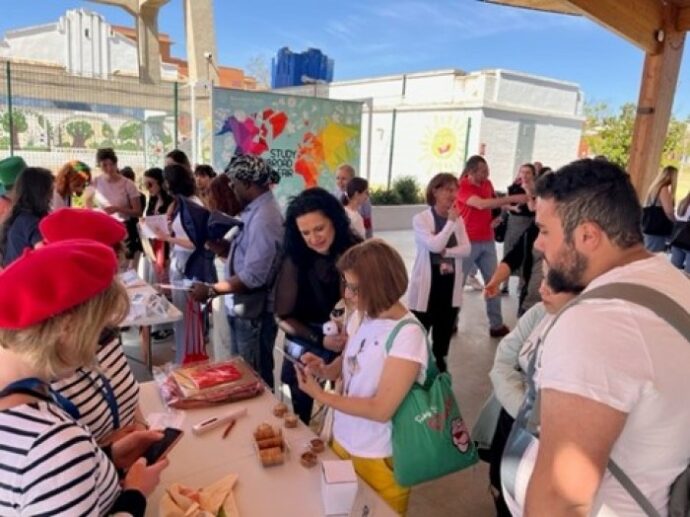 Study Abroad Fair atmosphere. Photo by Sini Aalto-Friman
Study Abroad Fair atmosphere. Photo by Sini Aalto-Friman
In the evening we tasted local tapas and seafood paella in a beautiful monastery and got to see a flamenco show with music. There we had a chance to network with the local professors and other staff as well and learned much about Huelva, Andalucía and Spain.
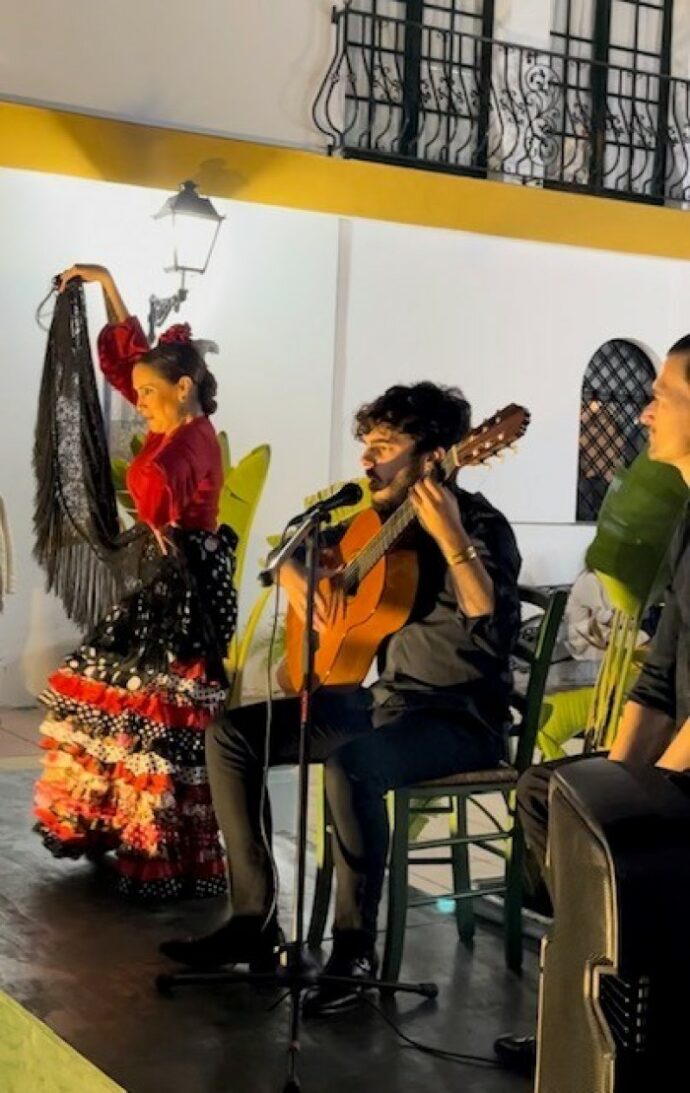 Flamenco dancing and music at Casa de Hermandad de Emigranted de Huelva. Photo by Sini Aalto-Friman.
Flamenco dancing and music at Casa de Hermandad de Emigranted de Huelva. Photo by Sini Aalto-Friman.
On Thursday April 20th we had a seminar about Opportunities for International Cooperation through Erasmus Ka2 Projects by Luis de Barutell. After that Dr. Elvira de Fatima Martin del Rio from the School of PhD studies introduced “International Co-Supervised Thesis”. At the University of Huelva it is possible to write your thesis in English, but abstract, conclusions and some other parts must be written in Spanish. So, some level of Spanish is required and strongly recommended in Huelva in general as well.
The day ended in a visit to the village of El Rocio, which is next to Donana National Park. There we saw a large area, mostly swamp, having almost 350 different species of birds passing by during some parts of the year. Plenty of white flamingos were there and we saw some wild horses. The village of El Rocio is an ancient pilgrimage site which is famous for its annual Romería, the Rocío Pilgrimage at Pentecost when it is overflowing with a seething mass of a million pilgrims, either on foot or with horses and decorated carts.
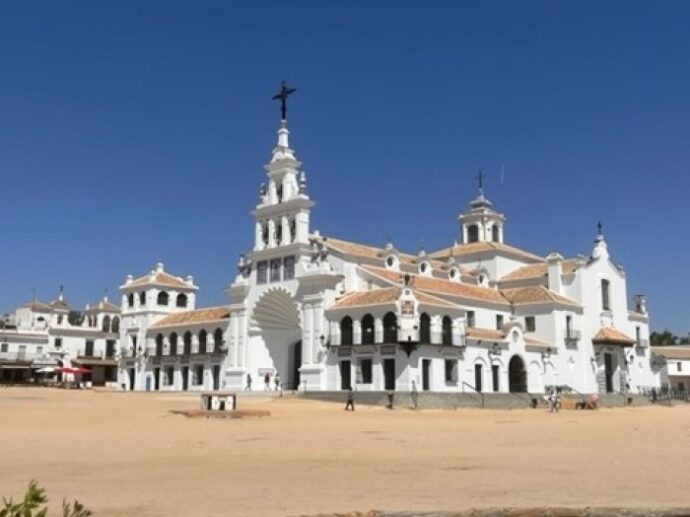 Santuario Nuestra Señora del Rocío. Photo by Sini Aalto-Friman
Santuario Nuestra Señora del Rocío. Photo by Sini Aalto-Friman
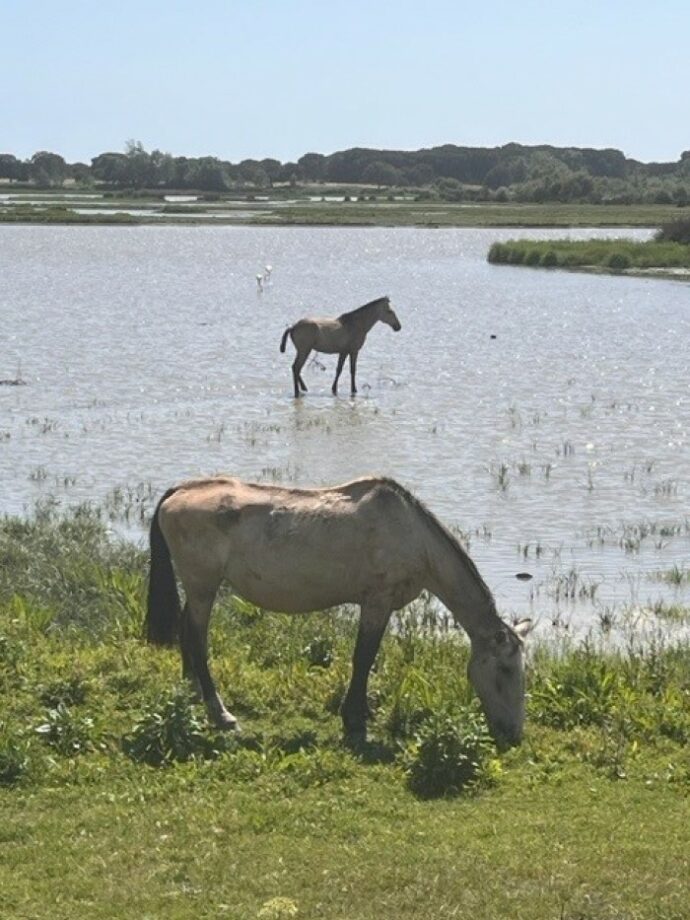 Wild horses and white flamingos at the back in Donana National Park. Photo by Sini Aalto-Friman
Wild horses and white flamingos at the back in Donana National Park. Photo by Sini Aalto-Friman
The week ended with collection of documents, feedback and most of us had to leave earlier because of “Semana Santa” and then the Spring Fair, the “Feria de Abril” in Seville, which caused that either trains and buses were fully booked on both days of my travel. Luckily, I got seats so I could catch my plane. This is something that needs to be considered if traveling to Huelva in the spring and bookings should be done in advance.
Conclusions
It was interesting and a great experience to visit Huelva and it is no wonder some participants return to Huelva year after year for their international week. Laurea will continue collaboration together with University of Huelva in the PIONEER network. Also, some possible collaboration ideas for nursing were shared during the international week and hopefully that will spark some great collaboration in the future.